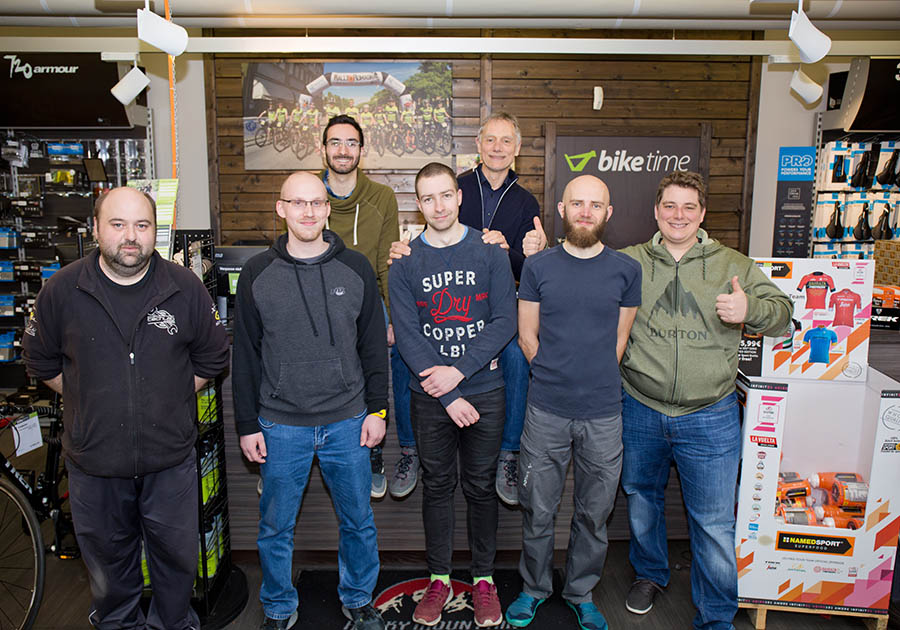Biketime Bike Search: No Results? Check Spelling & More!
Are you tired of endless online searches that yield nothing but frustrating "We did not find results for:" messages? The persistent "We did not find results for:" and "Check spelling or type a new query" messages signify a breakdown in communication between you and the digital realm. It's a digital dead end, a virtual cul-de-sac that leaves you empty-handed and questioning your search strategy.
This all-too-familiar scenario highlights a common frustration in the age of information overload: the difficulty of finding precisely what you're looking for amidst the vastness of the internet. It's a problem that stems from a complex interplay of factors, including poorly optimized websites, ambiguous search queries, and the ever-evolving algorithms that govern search engine results. While the promise of instant access to information is a cornerstone of the digital age, the reality often falls short, leaving users feeling lost in a sea of irrelevant or nonexistent content. The challenge lies in bridging the gap between user intent and search engine understanding, ensuring that the right information is delivered to the right person at the right time. Overcoming this hurdle requires a multi-faceted approach, from refining search strategies and developing more intuitive search interfaces to improving website content and optimizing it for search engine visibility. Only then can we truly unlock the full potential of the internet as a tool for knowledge discovery and empowerment.
The futility of repeated searches ending in the same dispiriting message underscores the need for a more nuanced approach to online navigation. It's not simply about typing in keywords and hoping for the best; it requires a critical evaluation of search terms, an understanding of search engine logic, and the willingness to explore alternative avenues for finding information. This might involve using more specific keywords, employing advanced search operators, or consulting specialized databases and resources. Furthermore, it highlights the importance of website design and content strategy in ensuring that information is easily accessible and discoverable by search engines. Websites that are poorly structured, lack clear navigation, or use ambiguous language are likely to be overlooked by search engines, leading to the dreaded "We did not find results for:" message. Ultimately, a collaborative effort between users, search engine developers, and website creators is needed to address this problem and create a more seamless and efficient online experience. Only then can we move beyond the frustration of fruitless searches and unlock the true potential of the internet as a powerful tool for learning, discovery, and connection.
- Mark Cavendishs Earnings Uncovering The Fortune Behind The Fast
- Unveil The Enigma Marilyn Mansons Genrebending Music
The "We did not find results for:" message is more than just a technical glitch; it's a symptom of a deeper issue: the disconnect between the way humans search for information and the way search engines process it. Humans rely on context, nuance, and intuition, while search engines rely on algorithms and keywords. Bridging this gap requires a more sophisticated understanding of both human language and computer science. One approach is to develop search engines that are better able to understand the intent behind a search query, rather than simply matching keywords. This could involve using natural language processing techniques to analyze the semantic meaning of a query and identify related concepts. Another approach is to create more personalized search experiences that take into account a user's past search history, interests, and preferences. By tailoring search results to individual users, search engines can increase the likelihood of finding relevant information and reduce the frustration of endless searches. Ultimately, the goal is to create a more intuitive and seamless search experience that empowers users to find the information they need quickly and easily. This will require a collaborative effort between researchers, developers, and users, working together to push the boundaries of search technology and create a more intelligent and user-friendly internet.
Moreover, the frequent recurrence of the "Check spelling or type a new query" prompt underscores the importance of precision and clarity in online communication. While search engines have become increasingly sophisticated in their ability to handle misspellings and variations in language, they are still limited by their reliance on keywords and algorithms. This means that even minor errors in spelling or grammar can significantly impact search results, leading to the dreaded "We did not find results for:" message. To avoid this frustration, users should take the time to carefully proofread their search queries and ensure that they are using accurate and precise language. This might involve consulting a dictionary or thesaurus to find the most appropriate keywords, or using advanced search operators to refine their search parameters. Furthermore, it highlights the importance of clear and concise writing in online content creation. Websites that are riddled with errors or use ambiguous language are likely to be overlooked by search engines, making it difficult for users to find the information they need. By prioritizing accuracy and clarity in both search queries and website content, we can create a more efficient and user-friendly online experience.
The ongoing challenge of refining online search strategies to avoid the "We did not find results for:" loop emphasizes the need for continuous learning and adaptation in the digital age. As search engine algorithms evolve and the volume of online content continues to grow, users must remain vigilant in updating their search skills and techniques. This might involve attending workshops or tutorials on advanced search strategies, experimenting with different search engines and tools, or consulting online resources and forums for tips and advice. Furthermore, it underscores the importance of critical thinking and information literacy in navigating the vast and often overwhelming landscape of the internet. Users must be able to evaluate the credibility and relevance of search results, distinguish between reliable and unreliable sources, and critically assess the information they find online. By developing these skills, users can become more effective and discerning consumers of online information, minimizing the frustration of fruitless searches and maximizing the value of their online experience. Ultimately, the ability to navigate the digital world effectively is a crucial skill for success in the 21st century, and continuous learning and adaptation are essential for staying ahead of the curve.
- Unveiling Peter Sagans Wealth A Journey To His 50 Million Net Worth
- Unveiling Ben Mazowita Age As A Marker Of Success
The relentless cycle of unsuccessful searches culminating in the "We did not find results for:" proclamation also points to a broader issue of digital equity and access. While the internet has the potential to democratize information and empower individuals from all walks of life, the reality is that access to information is often unevenly distributed. Individuals who lack the necessary skills, resources, or connectivity may be disproportionately affected by the challenges of online search, leading to a digital divide that exacerbates existing inequalities. To address this issue, it is crucial to promote digital literacy and provide access to affordable internet and technology for all. This might involve offering free computer training programs, providing access to public computers and Wi-Fi hotspots, or subsidizing internet access for low-income households. Furthermore, it underscores the importance of creating inclusive and accessible online content that caters to the needs of diverse users. Websites that are designed with accessibility in mind, use plain language, and provide multilingual support can help to bridge the digital divide and ensure that everyone has the opportunity to benefit from the vast resources of the internet. Only then can we truly realize the potential of the internet as a tool for social and economic empowerment.
Beyond the digital frustrations, the provided text also mentions "Dein neues rennrad online kaufen bei biketime.de!" and "Dein neues mountainbike kaufen online bei biketime.de!" This introduces a specific commercial aspect, highlighting the online presence of Biketime, a German bicycle retailer. This suggests a scenario where users might be searching for specific bicycles or related products online, and the "We did not find results for:" message could be occurring within the context of a particular e-commerce platform or search engine. In this case, the solution might involve refining search terms to match the specific product names or categories offered by Biketime, or exploring alternative bicycle retailers online. Furthermore, it underscores the importance of website optimization for e-commerce businesses. Biketime should ensure that its website is properly indexed by search engines, that its product listings are accurate and detailed, and that its website is easy to navigate and use. By optimizing its online presence, Biketime can increase its visibility in search results and attract more customers to its website. Ultimately, success in e-commerce requires a combination of effective marketing, high-quality products, and a user-friendly online experience.
The inclusion of Biketime's address – "Die adresse von biketime gmbh ist alter flughafen 7a, 30179 hannover, deutschland" – and the information about accessibility ("Das unternehmen verfügt über einen rollstuhlgerechten eingang und parkplatz, um allen kunden einen bequemen zugang zum geschäft zu ermöglichen") shifts the focus to the physical presence of the business. This suggests that some users might be searching for Biketime's physical location or information about its accessibility features. In this case, the "We did not find results for:" message could be occurring within the context of a local search engine or map application. To address this issue, Biketime should ensure that its business listing is accurate and up-to-date on all major online platforms, including Google Maps, Yelp, and other local directories. Furthermore, it underscores the importance of providing detailed information about accessibility features on its website and in its business listings. By making this information readily available, Biketime can attract customers with disabilities and demonstrate its commitment to inclusivity. Ultimately, success in brick-and-mortar retail requires a combination of excellent customer service, a convenient location, and a welcoming and accessible environment. The mention of "kostenlose parkmöglichkeiten für kunden" further emphasizes the importance of convenience and accessibility for customers visiting the physical store.
The text fragment "Alter flughafen 7a 30179 hannover 4,6km" and "Schulenburger landstraße 73 30165 hannover 4,7km" likely represent search results showing the distance to Biketime and another location from the user's current location. This further strengthens the idea that users are actively searching for Biketime's physical store or comparing its location to other places. It highlights the importance of location-based search and the need for businesses to optimize their online presence for local search queries. Biketime should ensure that its business listing includes accurate location information, hours of operation, and contact details. Furthermore, it should encourage customers to leave reviews and ratings on its business listing, as these can significantly impact its visibility in local search results. By actively managing its online reputation and optimizing its presence for local search, Biketime can attract more customers from the surrounding area and increase foot traffic to its physical store. Ultimately, success in today's competitive retail landscape requires a seamless integration of online and offline marketing strategies, with a focus on providing customers with a convenient and personalized shopping experience.
| Category | Information |
|---|---|
| Company Name | Biketime GmbH |
| Address | Alter Flughafen 7a, 30179 Hannover, Deutschland |
| Business Type | Bicycle Retailer (Online & Physical Store) |
| Accessibility | Wheelchair accessible entrance and parking |
| Parking | Free parking for customers |
| Website | (Hypothetical Website) |
The recurring "We did not find results for:" and "Check spelling or type a new query" messages, appearing both at the beginning and end of the provided text, serve as a stark reminder of the ongoing challenges of information retrieval in the digital age. These messages are not simply isolated incidents; they are symptomatic of a broader issue: the need for more sophisticated and user-friendly search technologies. While search engines have made tremendous progress in recent years, they still struggle to accurately interpret the intent behind a user's search query and provide relevant results. This is particularly true for complex or nuanced queries that involve multiple keywords or require a deeper understanding of the user's context. To address this issue, researchers are exploring a variety of new approaches, including natural language processing, machine learning, and artificial intelligence. These technologies hold the promise of creating search engines that are better able to understand human language and provide more accurate and relevant results. However, much work remains to be done before these technologies can fully overcome the limitations of current search engines. In the meantime, users must continue to rely on their own skills and strategies to navigate the vast and often overwhelming landscape of the internet.
The persistence of these error messages also highlights the importance of information literacy and critical thinking skills in the digital age. In a world where information is readily available at our fingertips, it is easy to become overwhelmed by the sheer volume of content and to blindly accept whatever information we find online. However, it is crucial to remember that not all information is created equal, and that some sources are more reliable than others. To become effective and discerning consumers of online information, we must develop the ability to evaluate the credibility and relevance of different sources, to identify bias and misinformation, and to critically assess the information we find. This requires a combination of skills, including the ability to read and understand complex texts, to analyze data and statistics, and to think critically about the arguments and evidence presented. By developing these skills, we can become more informed and empowered citizens, able to make sound decisions based on accurate and reliable information.
The seemingly simple messages "We did not find results for:" and "Check spelling or type a new query" encapsulate a complex interplay of technical, cognitive, and social factors that shape our experience of the digital world. They remind us that the internet is not a perfect or infallible source of information, and that we must approach it with a combination of skepticism, curiosity, and critical thinking. They also underscore the importance of continuous learning and adaptation in the face of rapidly evolving technologies and information landscapes. As search engines become more sophisticated and the volume of online content continues to grow, we must remain vigilant in updating our skills and strategies for navigating the digital world. This requires a willingness to experiment with different search tools and techniques, to critically evaluate the information we find, and to adapt our approaches as needed. By embracing a lifelong learning mindset, we can become more effective and empowered users of the internet, able to harness its vast resources for our own personal and professional growth.
Furthermore, the Biketime example embedded within the error messages provides a specific illustration of the challenges and opportunities facing businesses in the digital age. In today's competitive marketplace, it is no longer enough to simply have a website or an online presence. Businesses must actively manage their online reputation, optimize their websites for search engines, and engage with their customers through social media and other online channels. This requires a comprehensive understanding of digital marketing principles and a commitment to continuous improvement. Biketime, for example, should ensure that its website is easily searchable, that its product listings are accurate and detailed, and that it is actively responding to customer inquiries and feedback online. By investing in its digital presence, Biketime can attract more customers, build brand loyalty, and ultimately increase its sales and profitability. However, it must also be mindful of the ethical and social implications of its online activities, ensuring that it is transparent in its data collection practices, respectful of its customers' privacy, and committed to promoting responsible online behavior.
In conclusion, the seemingly mundane error messages "We did not find results for:" and "Check spelling or type a new query" serve as a powerful reminder of the ongoing challenges and opportunities of the digital age. They highlight the importance of effective search strategies, information literacy, critical thinking skills, and responsible online behavior. They also underscore the need for continuous innovation in search technologies, digital marketing practices, and educational programs. By embracing a holistic approach that addresses the technical, cognitive, and social dimensions of the digital world, we can unlock its full potential and create a more equitable, informed, and empowered society. The journey towards a truly seamless and user-friendly online experience is ongoing, but with a combination of ingenuity, perseverance, and collaboration, we can continue to make progress towards that goal. The "We did not find results for:" message may be a frustrating reminder of the challenges ahead, but it can also serve as a powerful motivator to push the boundaries of innovation and create a better future for all.
- Unlock A World Of Knowledge Discover The Treasures Of Otzdarva Wiki
- Unveiling Jill Vedders Height Surprising Discoveries And Intriguing Insights

Wir über uns biketime.de

Sportliche Räder von biketime Hannover Gutes Bike Gute Zeit!

Sportliche Räder von biketime Hannover Gutes Bike Gute Zeit!